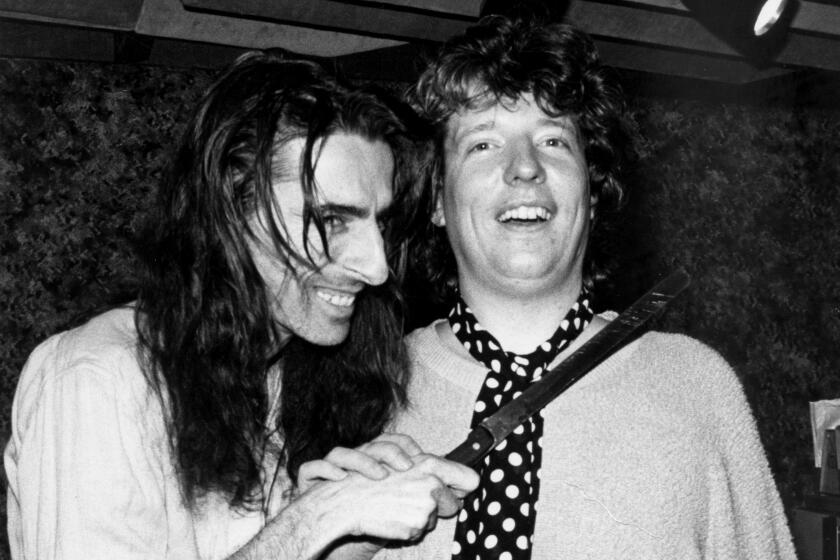Jazz Is Going to School for a Student Examination
- Share via
“Our mission,” says Dr. William J. Coffey, “is to preserve and perpetuate jazz--and what better way is there than to teach jazz appreciation to school children?”
Coffey’s current Jazz Goes to School project is among more than 100 local events timed to coincide with Black History month. Aided by funding from the Musician’s Union, the Berklee College of Music and other sources, Coffey, as the president of the Los Angeles-based International Assn. of Jazz Appreciation, has been dispatching a small group of jazzmen to demonstrate and discuss music for elementary schools, one junior high and one high school in South Los Angeles. The once-a-week classes began in mid-January and will end Friday.
“The reaction has been tremendous,” he says. “One 6-year-old student wrote in his report, ‘Until now I didn’t know there was any music except pop and rap.’
“Washington Rucker, the drummer who leads the group and the discussions, doesn’t try to make the kids play. They just listen to discussions and live illustrations. They learn about the origins of jazz, how to define it, the various idioms such as ragtime, New Orleans, blues, be-bop, as well as the problems of racism in jazz, and the heroes--Armstrong, Ellington, Parker--all people most of them had never heard of before.”
Coffey, a dermatologist from Iowa, grew up in country & Western territory but was bitten by the jazz bug while working as a biochemist in Chicago. He founded the jazz association in 1982; two years later it received nonprofit tax-exempt status. Among the organization’s other ventures are Sunday jam sessions at the Alleycat Bistro in Culver City; free concerts for senior citizens, a monthly newsletter, and reduced prices for certain jazz magazines and props. The association has nearly 500 members; chapters in other cities are being organized.
“As soon as we have more funding,” Coffey says, “we’ll expand our program to include whatever private and parochial schools are interested. Our eventual ambition is to apply this educational format to all the public schools in all 50 states by 1990. Just think--if even 2% of graduating seniors across the country became loyal fans, you’d be talking of hundreds of thousands of converts.
“The faculty members so far have been very receptive--some are jazz fans themselves; others learn along with the children.”
Coffey’s enthusiasm is contagious enough to suggest that his ambitious plans may well be realized. An old friend of pianist Ramsey Lewis, who was a neighbor during his Chicago years, Coffey has Lewis on his board of directors, along with disc jockey Jim Gosa and several educators in the Southland jazz community.
“We’re looking at a comprehensive learning experience,” he says, “eventually to include young musicians’ workshops and a summer institute bringing the youngsters together with world-class professionals. Black History Month is an appropriate time for us to be getting this program under way, but watch us--this is just the beginning of something long-lasting. Black musical history, jazz history, has to become a subject for serious study every month of the year.”
More to Read
The biggest entertainment stories
Get our big stories about Hollywood, film, television, music, arts, culture and more right in your inbox as soon as they publish.
You may occasionally receive promotional content from the Los Angeles Times.










